The Supreme Leader of the Islamic Republic of Iran, Ali Khamenei, claimed in a virtual speech to a group of Tabriz residents on February 16: "Today the people are in control of the country's destiny and they make their own choices. They may choose good or bad, but they choose for themselves, while before the revolution they were nothing... Changing the country’s system from authoritarian, monarchical and individual rule to a people's government, republic and democracy is one of the achievements of the Islamic Revolution.”
The truth, however, is rather different.
Rule of the People and its Characteristics
The rule of the people, or democracy, has its roots in ancient Greece in the fifth century BC. Democracy is used to refer to the form of governance employed in some ancient Greek city-states such as Athens. It evolved from direct democracy, in which people gathered to express their opinions and make decisions as individuals, to indirect democracy, in which they elect representatives to do it for them.
Of course, the definition of people and citizens has always changed throughout history. In ancient Greece, for example, women and slaves were not considered citizens and did not have the right to vote. In the United States, black men did not have the right to vote until 1867, and women got the right to vote in the 1920s.
In Iran, with the White Revolution of Mohammad Reza Pahlavi in 1962, women gained the right to vote and to be elected. For his part Ayatollah Ruhollah Khomeini, the former leader of the Islamic Republic, who had welcomed the presence of women in the protests during the revolution, wrote a letter to the Shah in 1962 followed by a telegram to Assadollah Alam, the prime minister, stating that the "entry of women into the parliament" was against Sharia.
Although there is no general consensus on the best form of democracy and the definition of "the people", much research has been done in this arena of the social sciences. Most literature emphasizes the assumed pillars of democracy, which include free and fair elections, civil society and active citizen participation, a free press, the separation of powers into the three independent branches of legislature, the executive and the judiciary, free political parties and pluralism, and finally, the peaceful transfer of power from one set of representatives to the next.
Elections in Iran
According to the Constitution of the Islamic Republic of Iran, the two branches of government – the executive and the legislature – are elected bodies, but the head of the judiciary is directly appointed by the Supreme Leader. City and village councils, which are responsible for urban management in Iran, and the Assembly of Experts, which has the power to elect and remove the Supreme Leader, are also elected. The leader of the Islamic Republic, that is, the person who has the most authority in accordance with the law and in practice, is elected by the Assembly of Experts.
In the 42 years of the Islamic Republic’s existence, an average of one election has been held every two years. According to Article 99 of the Constitution, their validity and approval have been the responsibility of the Guardian Council. The Guardian Council, the history of which goes back to the Constitutionalist revolution, was established to prevent the passage of unconstitutional laws in the National Assembly. But in the Islamic Republic it has the task of overseeing leadership, presidential, parliamentary and referendum votes.
The 12-member Guardian Council is an unelected body. Six members are experts in Islamic law and are directly appointed by the Supreme Leader, and the other six are lawyers who are elected by the head of the judiciary, who is himself chosen by the Supreme Leader, and introduced to the parliament by him for approval or rejection.
In addition to the task of monitoring the elections, which is called approbatory supervision, the Guardian Council has the task of monitoring Acts of the Iranian parliament to ensure legislation is in accordance with the Constitution and the laws of Sharia. The council can reject laws passed in parliament, including laws related to the elections, or call for their amendment and finally prevent implementation of some of them.
The mechanism of the Guardian Council and electoral laws in the Islamic Republic are regulated in such a way that absolute power remains in the hands of the Supreme Leader. Therefore this body is practically the arm of the Supreme Leader for exercising political power in elected institutions, preventing the holding of free and fair elections in Iran.
Civil Society, Partisanship and Pluralism
According to the World Bank, civil society is "a collection of organizations, groups, non-governmental organizations, workers’ trade unions and guilds, foundations, religious groups and charities" whose mobilization can be effective in changing government policies for the benefit of the people.
In fact, civil society acts like a human ear, bringing together scattered voices and sounds and conveying them through a narrow channel to policymakers and the leaders of political, social and economic systems. Civil society can be one of the pillars of democracy alongside independent political parties because it is speaks for the powerless strata of society.
However, in the Islamic Republic, institutions that are part of civil society, such as charities, NGOs and associations, must obtain a license from the Ministry of Cooperatives, Labor, and Social Welfare in order to operate. Trade unions, syndicates and parties must also obtain permission from the Interior Ministry. Thus, in practice, these institutions, which are supposed to operate independently of the government, become "servants" of the government themselves and intentionally or inadvertently fail to reflect the voices of the people to the government.
The Law on the Activities of Political Parties and Groups, which was enacted in October 2016, states that a party's ideology must be in line with “Islamic principles”, and according to the fifth article of this law, licensed parties must explicitly adhere to "the Constitution and the principle of absolute jurisprudence [Velayat-e Faqih]". Security and judicial crackdowns on members of trade unions, such as the Tehran and Suburbs Bus Company Workers' Union, have been carried out on the pretext that they do not have a legal license.
Media in the Islamic Republic
The press, broadcasting outlets and the internet in Iran are owned by the dominant faction and the person of the Supreme Leader of the Islamic Republic. The head of the Islamic Republic of Iran Broadcasting (IRIB), as the only official radio and television station, is directly appointed by the Supreme Leader and is a member of the highest cultural and political councils.
According to the press law, the press in Iran is "free to express any content, unless it violates the principles of Islam or public law." Article 2 of the law also states that the press must act in order to "advance the goals set forth in the Constitution of the Islamic Republic," and to "promote and propagate the original Islamic culture and the spread of moral virtues" and be "on the path of the Islamic Republic."
Press, websites and news agencies must obtain permission to operate from the Ministry of Culture and Islamic Guidance. The Press Supervisory Board oversees the media in Iran. According to the Press Law, all members of the Press Supervisory Board must be Muslims. The board is also affiliated with the parliament, the government and the judiciary, according to its constituent members. The members of this board include a judge of the Supreme Court elected by the Supreme Judicial Council, the minister of Islamic guidance or his full representative, a member of parliament chosen by the parliament, a university professor appointed by the minister of culture and higher education, and a representative of the media.
Apart from what is happening in the laws and regulations of the Islamic Republic that have deprived the press of its independence, the personal involvement of the Supreme Leader in the content of the press and the internet has also destroyed the freedom of this fundamental element of democracy. Khamenei issued a decree in 2000, which was later termed a "governmental decree" by the then-speaker of parliament, Mehdi Karroubi, that resulted in the closure of 18 publications and newspapers in Iran and the dismissal of more than 1,000 journalists and technical staff.
Khamenei was also personally involved in the establishment of the "Supreme Council of Cyberspace" in March 2012 and the direct appointment of its 13 members. Representatives of elected bodies in the council are also elected indirectly by him through the Guardian Council.
Peaceful Transfers of Power
As Khamenei's office has stated, "A consistent practice in all governments has been to coordinate with the leadership in the selection of the ministers of defense, foreign affairs and intelligence, and this is in line with the Constitutional mandate to the leader in foreign, defense and security policies." The office also said in a statement on May 27, 2017 that the Supreme Leader has some powers in the selection of the ministers of education, science and guidance.
In practice Khamenei also has power over the interior minister, and the proof of this is his not delegating the appointment of the commander of the security forces to Interior Minister Abdolvadeh Mousavi Lari during the presidency of Mohammad Khatami. Khamenei did not delegate this appointment to Mousavi Lari or later to his successor Abdollah Nouri, thus opposing the reformist government.
Khamenei's decision-making and exercise of power in the field of ministerial appointments was not limited to the Khatami era. It was also evident in the dispute between him and former President Mahmoud Ahmadinejad and the latter’s 11-day walkout in 2011 in protest at Khamenei's involvement in retaining Intelligence Minister Haidar Moslehi.
Khamenei is also officially the commander-in-chief of the country's military. In most republican systems in the world, the military is also in the hands of the president. Even during the time of Khomeini, when Khamenei suggested handing over military affairs to a trusted person, Khomeini appointed Akbar Hashemi Rafsanjani as deputy commander-in-chief and practically withdrew from deciding on military affairs. But Khamenei does personally select the commanders of the Islamic Revolutionary Guard Corps and the army, and closely monitors them for loyalty.
Khamenei also appoints the head of the judiciary and therefore has the upper hand in controlling individuals in elected institutions. For example, despite the fact that members of parliament have immunity, Mahmoud Sadeghi, a former MP for Tehran in the ninth and tenth parliaments, was fined and sentenced to 21 months in prison by the judiciary under Ebrahim Raeisi, because of his request for transparency in the personal accounts of Sadegh Larijani, the previous head of the judiciary.
We can therefore conclude that in the Islamic Republic of Iran, elected institutions such as the presidency and the parliament have virtually no power. No true transfer of power has taken place – whether soft or hard – except at the time of Ayatollah Khomeini's death.
The Islamic Republic in the World of Democracies
The world today is full of self-proclaimed democracies. Many countries whose elected leaders remain in power for life and whose mode of governance is more authoritarian than any monarchy try to make themselves appear democratic through rigged or limited elections. This is happening in China, Russia, Belarus, Central Asian countries such as the Republic of Azerbaijan and Tajikistan, and the Middle Eastern countries of North Africa such as Egypt and Syria.
Different mechanisms have been designed to measure the health and freedom of elections in different countries. One of these is the Freedom House rating system. Here Iran is designated as a “non-free” country with a score of 17, on a par with countries such as Chad and the United Arab Emirates. Venezuela, with a score of 16, and Cameroon, with a score of 18, are respectively one ranking point “freer” and “less free” than Iran.
The Economist Intelligence Unit has another world-renowned analytical tool: the Democracy Index. In this index, five criteria are considered: electoral processes, pluralism, civil liberties, performance of political participation in government, and political culture. Countries are also divided into four categories: full democracy, imperfect democracy, hybrid regime, and totalitarian or authoritarian regime. In the 2020 Democracy Index report Iran has a score of 2.20 and is behind countries such as Bahrain and China. Iran’s system is defined as a totalitarian one and its rank in democracy is 152 out of 167 - at the bottom of the list of countries in terms of democracy.
Conclusion
Analysis of elections and the distribution of power in the Islamic Republic, as well as internationally accepted indicators of democracy, show that Khamenei's claim about the country’s system is false.
IranWire calls this claim a "Pinocchio's lie" because Khamenei has repeated it many times before, knowingly falsely, and even in his statement about "The Second Step of the Revolution" claimed that democracy was one of the achievements of the Islamic Revolution.
You can read more about our fact-checking methodology here.
Read other articles in the series:
Are Vaccines Part of America and Britain’s Devious Plans?
Iranian MP Promotes a Lie About Bill Gates and Vaccines
Iran’s Minister of Intelligence Claims Ministry is Benevolent and Caused No Harm
visit the accountability section
In this section of Iran Wire, you can contact the officials and launch your campaign for various problems




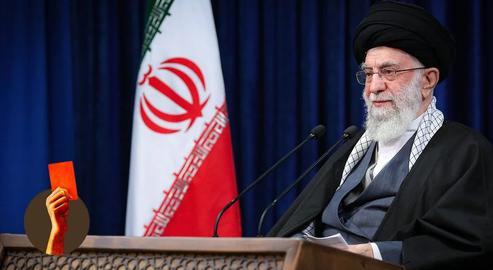
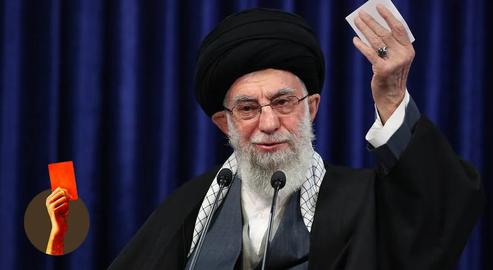
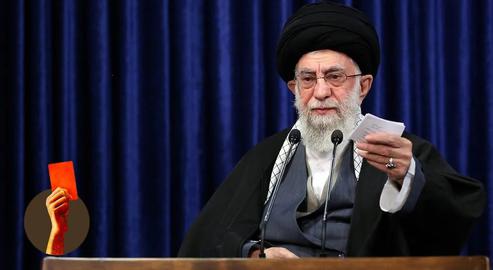
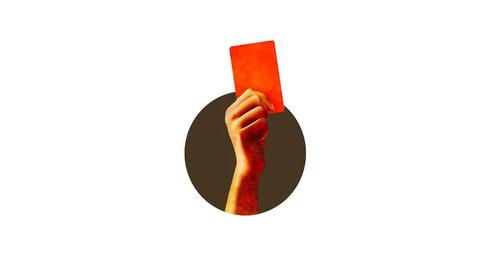

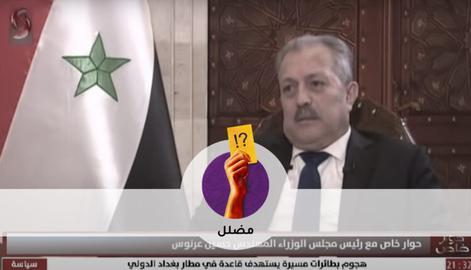

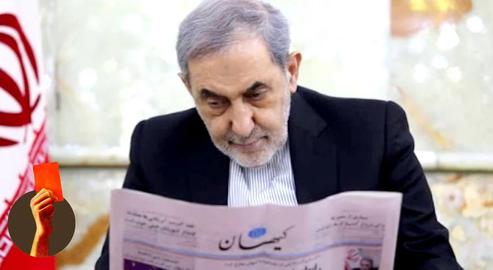

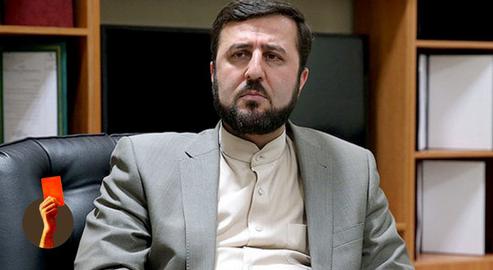
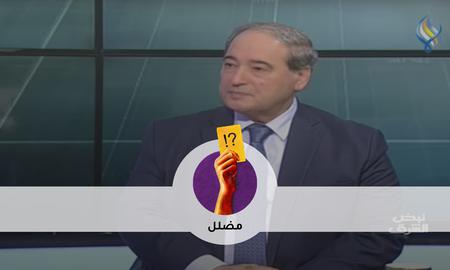
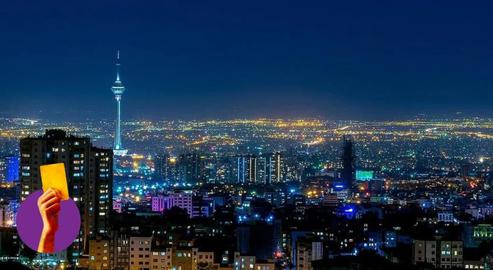
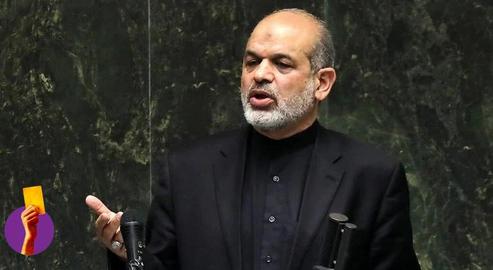
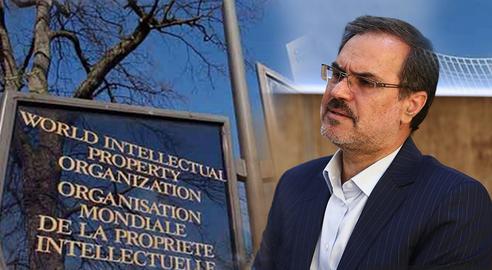

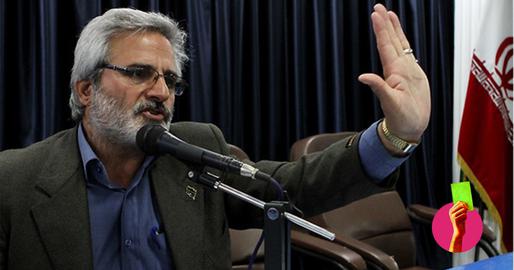
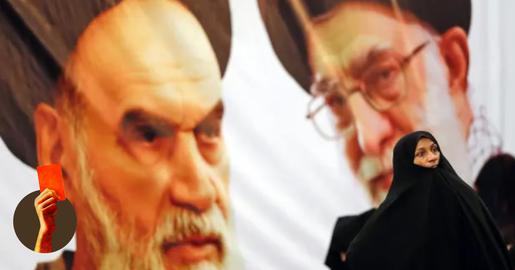
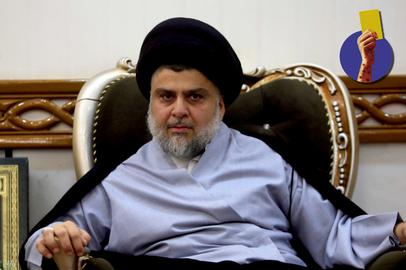
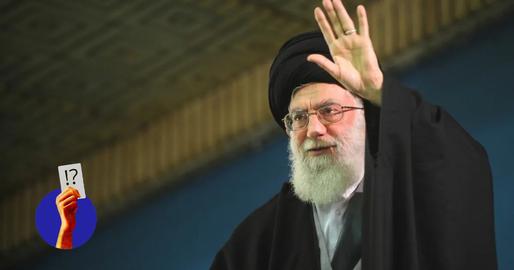
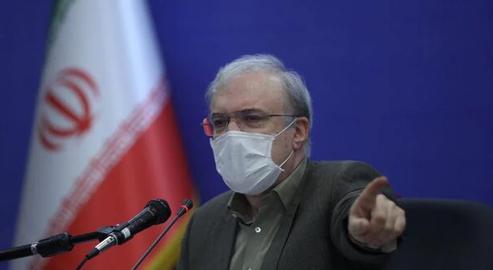
comments